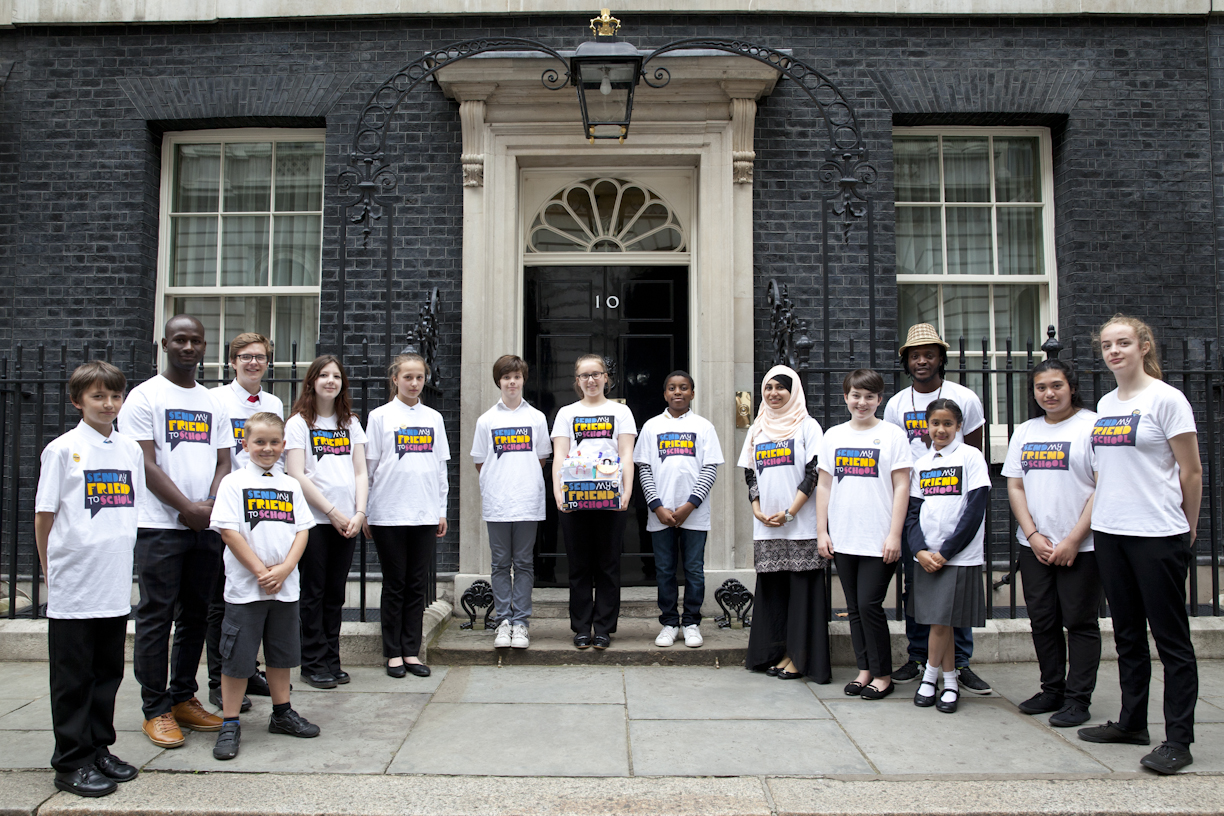Every single day, girls around the world are put in danger simply for trying to learn.
In Northeast Nigeria, where girls are scared to attend school because of the threat posed by militant groups like Boko Haram.
In South Sudan, where a girl is more likely to die in childbirth than she is to finish secondary school.
In Syria, where child marriage has almost doubled since the civil war uprooted almost half the country’s population and left hundreds of thousands of girls without access to education.
The truth is, girls in Nigeria, South Sudan and Syria are not alone. Globally there are 39 million girls without access to quality education because of conflicts and crises. Each and every one of these girls faces unique and complex challenges, with their safety, more often than not, being among the most urgent.
That is why today, Send My Friend to School, as part of our 2018 Make Schools Safe campaign, is launching a new briefing, Safe from Harm: Protecting Girls’ Education in Conflicts and Crises. This comes at an important moment in the global effort to improve access to education during crises.
Why, you might ask? Well there are a couple of exciting reasons
1. G7 leaders will gather in Canada this week for the group’s annual summit and girls’ education, particularly in crises, is on the agenda
The Prime Minister of Canada recently announced that the issue of girls’ education, particularly in conflict and crises, will be on the agenda of the Canadian G7 Leader’s Summit this year. It is the first time in several years that education has been on the agenda and presents a great opportunity to secure commitments that could make school safer for the world’s most vulnerable girls.
That’s why we are calling for the UK Government to support a G7 declaration on girls’ education and encourage other countries to do the same. We want to see the UK push for specific measures that make schools safe for girls, and we want to see increased resources carved out of future budgets to deliver on commitments made at the Summit. We also hope that the UK can use the G7 Summit as an opportunity to get other countries to endorse the Safe Schools Declaration – a key ask for our 2018 campaign.
2. Education Cannot Wait is launching its first Strategic Plan, which aims to reach 3.7 million girls with education and protection by 2021
Some readers will remember our 2016 report, The Fierce Urgency of Now. The report called on the UK Government to become a founding partner in the Education Cannot Wait fund – a disruptive new organisation that would help ensure no child missed out on education because of conflicts and crises. Well, two years on from that campaign, ECW, as it is often known, has just this week launched its first 5-year strategy.
Amidst all the declarations, photos and headlines of the G7 Summit, ECW’s Strategic Plan stands ready and waiting to turn big promises into action on the ground. It is the first of its kind, a blueprint for placing education at the heart of humanitarian response.
The ambitious plan notes ECW’s ‘special emphasis on girls and adolescent women’ and states that gender equality and protection are at the very heart of the organisation’s mission.
Already the organisation is funding targeted interventions that deliver for girls. In Afghanistan, two thirds of the total number of children reached so far are girls. Since its inception, 61% of the teachers trained through its funded programmes were female. And despite the huge barriers to achieving gender parity in enrolment, 48% of the children supported so far have been girls.



 Send My Friend to School brings together thousands of children across the UK to speak up for the right to education.
Send My Friend to School brings together thousands of children across the UK to speak up for the right to education.